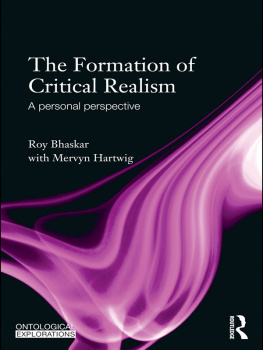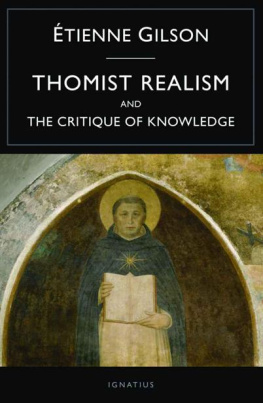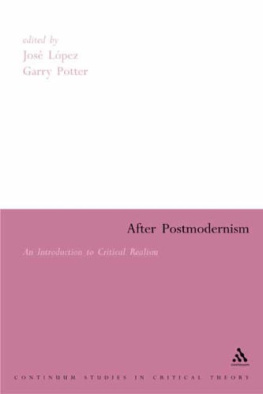The Formation of Critical Realism
This series of interviews, conducted in the form of exchanges between Roy Bhaskar and Mervyn Hartwig, tells a riveting story of the formation and development of critical realism.
Three intersecting and interweaving narratives unfold in the course of this unfinished story: the personal narrative of Roy Bhaskar, born of an Indian father and English mother, a child of post-war Britain and Indian partition and Independence; the intellectual narrative of the emergence and growth of critical realism; and a world-historical story, itself theorised by critical realism in its discussion of the development of modernity.
This book gives an invaluable account of the development of critical realism, and its consolidation as a leading philosophy of our times. It takes us through the major moments of its formation, the principal objections to and controversies within critical realism, the establishment of its institutions, and considers its limits and future development. Special features of the book include discussion of the genesis of critical realism, and the origins and nature of the so-called dialectical and spiritual turns.
The informal dialogical style of The Formation of Critical Realism makes it compelling reading and an invaluable source for students of critical realism as well as all those interested in the intellectual story of our times.
Roy Bhaskar is the originator of the philosophy of critical realism and the author of many acclaimed and influential works, including A Realist Theory of Science, The Possibility of Naturalism, Scientific Realism and Human Emancipation, Reclaiming Reality, Philosophy and the Idea of Freedom, Dialectic: The Pulse of Freedom, Plato Etc., Reflections on meta-Reality and From Science to Emancipation. He is an editor of Critical Realism: Essential Readings and was the founding chair of the Centre for Critical Realism. Currently he is a World Scholar at the University of London Institute of Education.
Mervyn Hartwig is a leading commentator on critical realism, and the editor of and principal contributor to the recently published Dictionary of Critical Realism.
Ontological explorations
Other titles in this series:
From One Empire to the Next
Radha DSouza
Science for Humanism
The recovery of human agency
Charles R. Varela
Philosophical Problems of Sustainability
Taking sustainability forward with a critical realist approach
Jenneth Parker
Dialectic and Difference
Dialectical critical realism and the grounds of justice
Alan Norrie
Interdisciplinarity and Climate Change
Transforming knowledge and practice for our global future
Edited by Roy Bhaskar, Cheryl Frank, Karl Georg Hyer, Petter Nss and Jenneth Parker
Conversations about Reflexivity
Edited by Margaret S. Archer
The Formation of Critical Realism
A personal perspective
Roy Bhaskar with Mervyn Hartwig

LONDON AND NEW YORK
First edition published 2010
by Routledge
2 Park Square, Milton Park, Abingdon, Oxon, OX14 4RN
Simultaneously published in the USA and Canada
by Routledge
270 Madison Avenue, New York, NY 10016
Routledge is an imprint of the Taylor & Francis Group, an informa business
This edition published in the Taylor & Francis e-Library, 2010.
To purchase your own copy of this or any of Taylor & Francis or Routledges collection of thousands of eBooks please go to www.eBookstore.tandf.co.uk.
2010 Roy Bhaskar and Mervyn Hartwig
All rights reserved. No part of this book may be reprinted or
reproduced or utilised in any form or by any electronic,
mechanical, or other means, now known or hereafter
invented, including photocopying and recording, or in any
information storage or retrieval system, without permission in
writing from the publishers.
British Library Cataloguing in Publication Data
A catalogue record for this book is available from the British Library
Library of Congress Cataloging-in-Publication Data
The formation of critical realism : a personal perspective /
Roy Bhaskar with Mervyn Hartwig. 1st ed.
p. cm.
Includes bibliographical references (p. ) and index.
1. Bhaskar, Roy, 1944Interviews. 2. Philosophers Great BritainInterviews. 3. Critical realismHistory.
I. Hartwig, Mervyn. II. Title.
B1618.B474A5 2010
149'.2dc22
2009040911
ISBN 0-203-87808-6 Master e-book ISBN
ISBN 10: 0415455022 (hbk)
ISBN 10: 0415455030 (pbk)
ISBN 10: 0203878086 (ebk)
ISBN 13: 9780415455022 (hbk)
ISBN 13: 9780415455039 (pbk)
ISBN 13: 9780203878088 (ebk)
Contents
Preface
The interviews contained in this book were done over a period between August 2007 and March 2008. By August 2008 they were very largely edited, but this process was not completed until over a year later owing mainly to illness on Roys part (see p. 200).
They tell the story of the philosophical formation of critical realism from the inside by its chief architect. This was a dialectical, and at times dramatic, process involving both what Roy calls a continuing struggle to be in his dharma, to do what he is best at doing, and successive critiques, and auto-critiques, of his preexisting thought, in the course of which lacunae were identified and remedied. This process took critical realism philosophically through several distinct phases and levels of development, the main ones of which are original or basic critical realism, dialectical critical realism and the philosophy of meta-Reality. The struggles involved in this process took place in the context, and against the background, of struggles and upheavals in the wider society in which Roy lived, developments which form an essential part of the narrative of the book.
It is important to stress that this story is only of the philosophical formation of critical realism, and it is even then a personal perspective, because we would argue that critical realism has been practised in science and social science for centuries, and it is precisely the rationality of this practice that Roys work has attempted to bring out. But it has not been self-conscious, and we would argue that it is explicit ex ante, philosophically self-conscious metatheory that is needed now, especially in the human sciences, precisely insofar as their practitioners are besieged by warring methodologies and philosophical standpoints, between which they are asked to choose (or make the choice of abstaining from choice). There is a sense in which we are all philosophers now. In this context the task that critical realism sets itself of philosophical underlabouring has never been more urgent.
At the same time, Roy held in his work that philosophy only gets its importance and interest from engaging with the sciences and other human practices, especially practices oriented to human emancipation, and although much of his work has been done in relative isolation, it could not have been accomplished without the nourishment and support he has received from friends and colleagues in other disciplines. In the 1970s this involved relatively clandestine meetings with other self-conscious critical realists, then in the 1980s and early 1990s through annual







